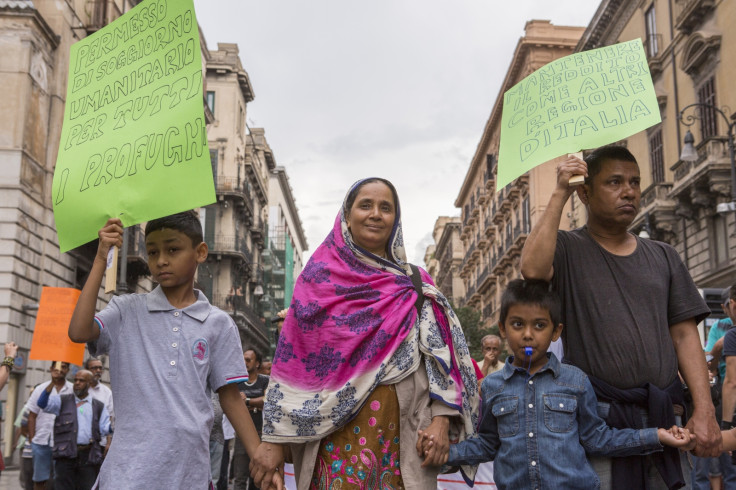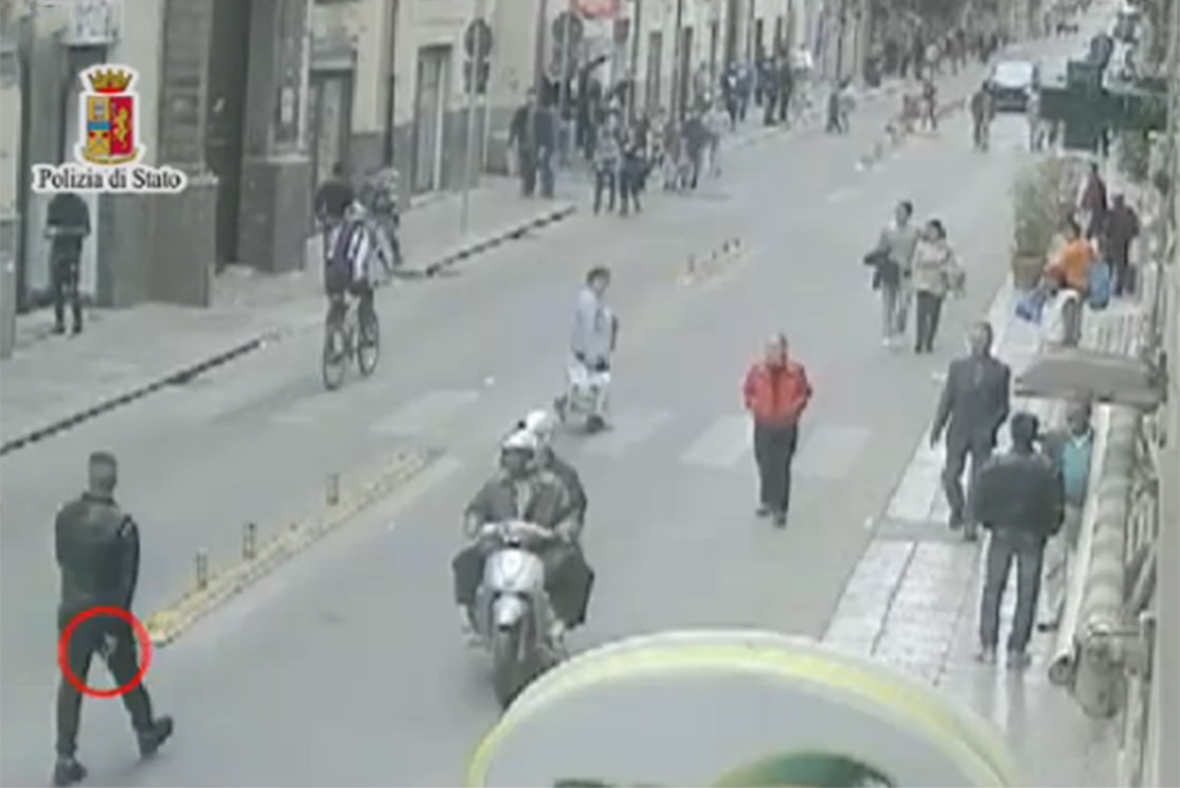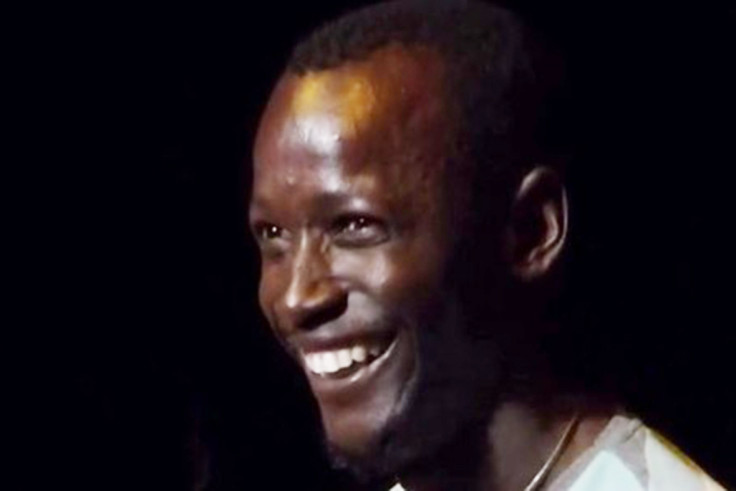Meet the migrants who are helping Italians take on the Sicilian mob
Bangladeshi and African migrants say the the Cosa Nostra is more powerful than the government.
On a warm day in April, Yusupha Susso, a 21-year-old Gambian migrant, was in Ballarò market, the heart of Palermo's migrant community, when local mobster Emanuele Rubino shot him in the head.
Earlier that day Susso was with friends at an African barbershop in Ballarò. Once his friend had his hair cut, the young migrants walked through the market past the stalls selling fresh fish and fruit. Then an unprovoked altercation took place between them and an Italian man on an electric bike.
Susso said this man punched his friend, but they told him: "We are not here to fight, we are here for peace." The man did not listen to them and shouted at them saying they were being rude. He made a call and shortly after Rubino, rumoured to have links to the Cosa Nostra,turned up with a handgun.
Shortly after Susso was set upon and chased out of Ballarò into a road nearby. CCTV images show him cowering before Rubino. He was shot through the skull but astonishingly the bullet passed out the other side, it grazed the brain but did not damage it. This brutal attack left Susso in a coma.
Rubino was arrested, along with others. In a phone interview, Susso reported he was shot as a sign that mafia controlled Ballarò and that migrants were not welcome there: "They shot me to show us the area belongs to them; they are only thinking about territory." He added, "The mafia has more power than the Palermo government – they can't do anything".

Susso is now living in fear in Milan. He told me, "My life is finished." He faces many health issues and is battling anxiety. He rarely leaves his friend's house where he is living as he waits return to Palermo for the court case. Susso comes from a family of musicians in Gambia, and like his parents he was a singer. But now he says, "I don't feel well, I don't know if I will sing again."
The attempted murder of Susso was a watershed moment in Palermo. Following the attack, thousands marched through the city in the rain to show their opposition to the mafia. This attack on an innocent, young migrant brought Sicilians and migrants together. Susso's shooting has galvanized Bangladeshi stallholders who work in Ballarò market and had long remained silent for fear of retribution. They have done something rarely seen in Sicilian society: take on the mafia bosses via the courts.
This attack provoked the rebellion of migrant communities and saw the Bangladeshi stallholders rise as leaders of the movement. For years, immigrants had faced threats and harassment. In May of this year, ten mafia-linked criminals with ties to the Rubino family were arrested for harassing migrants and demanding payment of "pizzo"(protection) money. Addiopizzo, an anti-mafia movement founded by university graduates in 2004, supported the Bangladeshi stallholders in getting these mafiosi arrested.




But this time, rather than intimidate migrants into silence, the mafia in Ballarò has in fact united migrants and Sicilians with those long-standing anti-mafia activists in Sicily to come together to take on the mafia.
Palermo is both the capital and largest city in Sicily and it has for centuries been at the crossroads of civilisations. Ballarò market was once a crumbling part of the city, but today it has been rejunivated by migrants. In recent years the migrant population has increased in Palermo, and it has now become a multicultural city and Ballarò is a symbol of the changed landscape of the city.
Much of the recent media attention in Sicily has focused on migrant arrival on Italian shores. Italy is usually depicted a transit zone for migration to northern Europe, a place of arrival and reception, as migrants aspire to reach more prosperous economic and welfare states. What is forgotten is that many do remain and seek (and struggle) to make Italy their home. Italy is relatively new to mass migration, which only began in the 1980s as diverse migrant groups from a myriad of countries went to work in the northern factories, as well as in agricultural and in domestic spheres. Rarely did these migrants come to Sicily. But this began to change in the 1990s when large numbers of Bangladeshis started to arrive on the island.
READ MORE: The hidden racism of the refugee crisis — why does nobody care when black Africans drown?
Everywhere you go in this ancient city, Bangladeshis are visible on most street corners. They work long hours selling gaudy plastic products to tourists: flowers, mobile phone covers and plastic fridge magnets.
Tensions had been escalating between migrants and the mafia for sometime. Ballarò had a reputation for being a mafia hot spot, but this image has been challenged as this area has become home for a large migrant population.
Sicilians, according to anti-mafia activists, don't typically come together to take cases against the mafia as they fear retribution, but migrants are unhindered by longstanding fears or local cultural awareness about the mafia. So they are coming together to take on the mafia bosses. Edoardo Zaffuto from Addiopizzio said that in the past there were some cases of individuals going to the police. But what is unusual about the Bangladeshi stallholders is their decision to come together as group and go to the police. He said, "rarely we had such a reaction of people that talk to each other and decide its time to free themselves from the mafia, it's interesting that the protagonist of this act of rebellion were not people from Palermo, but people from Bangladesh".
I don't make enough to survive, some months I make 500 or 600 euros, sometimes my friends help my family

Bangladeshi stallholders like Md Ala Miah said that they had faced threats by the mafia for years. Miah arrived in Palermo in 2009, but his first port of call in Europe was in Whitechapel, London, where he came to study English. He now lives in Ballarò with his wife and two kids, and works long hours doing two jobs. Every day from 3pm he runs his stall in Ballarò market selling mobile phone covers and electronic goods. In the mornings he starts at 5am cleaning the homes of Italian families.
Stallholders like him working late into night face threats, on Saturdays he works until 4am. He said, "they try to steal from me, young teenagers disturb us", and sometimes it's more serious when organised mafia-linked criminals demand pizzo from them. But when he calls the police he says they do nothing. He feels frustrated that the police do not take their concerns seriously, so the Bangladeshi stallholders have had to resort to organising their own security.
Though his family has lived in Palermo for many years they do not have residency papers. Without these papers his family is stuck in limbo. He says, "most Bangladeshis in Palermo are like me". Even though he works long hours doing two jobs, he says, "I don't make enough to survive, some months I make 500 or 600 euros, sometimes my friends help my family". Even though his family faces a grim situation in Palermo, he is adamant that he wants to stay in the city.
What the shooting of Susso did was to expose the mafia attacks on migrants in Sicily. Since then Palermo's migrants, led by a brave group of Bangladeshi stallholders, have come together to lead the fight against the mafia in Sicily.
Ismail Einashe is a freelance journalist, researcher and a contributing editor at Warscapes, a foreign affairs magazine. He tweets @IsmailEinashe. Kate Stanworth's photographs can be seen at www.katestanworth.com.
© Copyright IBTimes 2025. All rights reserved.






















